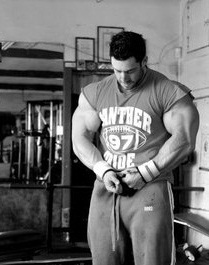 Day in and day out, you bust your ass in the gym, lifting hard and heavy in your quest for greater size. But what you do outside the gym, in-between those brutal training sessions, is just as important if not more so if you want to reap the benefits of all that super-human effort. That’s where we come in. We gathered top nutritionists Hany Rambod, Oscar Ardon and Neil Hill all of whom have worked with some of the world’s best IFBB Pro League athletes (do the names Phil Heath, Kai Greene and Flex Lewis ring any bells?) and Jim Stoppani, and picked their brains for the 411 on how to put on muscle, fast!
Day in and day out, you bust your ass in the gym, lifting hard and heavy in your quest for greater size. But what you do outside the gym, in-between those brutal training sessions, is just as important if not more so if you want to reap the benefits of all that super-human effort. That’s where we come in. We gathered top nutritionists Hany Rambod, Oscar Ardon and Neil Hill all of whom have worked with some of the world’s best IFBB Pro League athletes (do the names Phil Heath, Kai Greene and Flex Lewis ring any bells?) and Jim Stoppani, and picked their brains for the 411 on how to put on muscle, fast!
Here it is, 20 steps to help boost you from decent to downright massive.
1 Protein
Protein is made up of amino acids, which are the building blocks of life. They’re essential for muscle recovery and growth so you need to put away plenty of eggs (both yolks and whites), poultry, fish, lean beef, nuts and protein powders. Ideal protein requirements vary with each individual, but every meal should contain at least 20-30 grams.
Hill Says:
“I’m a big believer in eating a wide variety of protein sources, as opposed to just chicken or beef, as most bodybuilders do. Because each protein source has a different amino acid profile, eating a varied diet will ensure that you get the full spectrum of aminos for optimal growth.”
Do This: Consume a minimum of one gram of protein per pound of bodyweight each day. For a 200-pound bodybuilder, that’s 200 g of protein daily.
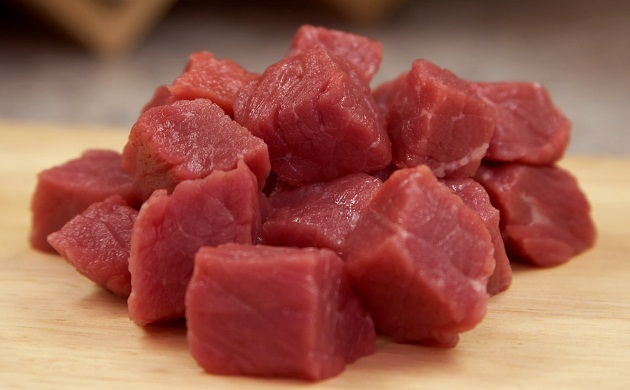
2 Calories
If you want to gain weight and muscle take in more calories. Trouble is, a sudden, rapid influx of calories into your system can quickly channel directly to your midsection. Increase calories slowly to allow your body time to adapt, and after about two weeks, assess your physique. If it’s headed in the right direction, continue to add more calories.
Ardon Says:
“Slowly bumping up your calories allows your metabolism time to adapt. This, in turn, helps to increase your basal metabolic rate and appetite, so you can take in more food.”
Do This: Increase calories by 300-500 per day to drive growth while adding minimal, if any, bodyfat.
3 Water
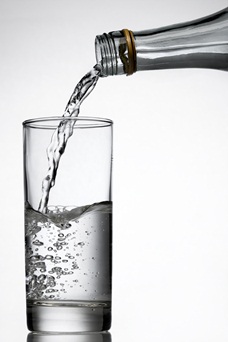 Water may not top your list of important nutrients, but it’s required to maintain health and muscle mass. After all, muscle is about 75% water. So keeping your muscle fibers well hydrated will make them fuller and bigger.
Water may not top your list of important nutrients, but it’s required to maintain health and muscle mass. After all, muscle is about 75% water. So keeping your muscle fibers well hydrated will make them fuller and bigger.
Stoppani Says:
“Water is also crucial for muscle strength. A study published in the Journal of Strength & Conditioning Research found that subjects who were dehydrated lifted less weight, and that a loss of as little as 2% of body-weight decreased strength and endurance.”
Do This: Drink a minimum of 16 cups (1 gallon) of water over the course of the day.
4 Multiple Meals
Eating many smaller meals that are rich in protein and include carbs helps keep a steady flow of insulin and amino acids in the body. If you eat large amounts in one sitting, you’re much more likely to store fat, as the body doesn’t require that many nutrients at one time.
Rambod Says:
“Sitting down to eat every 2-3 hours builds structure and discipline into daily life, two things every bodybuilder needs to be successful. Prepare your meals in advance and take them with you to school, work or just store them in the fridge so that come meal time, all you have to do is heat it up.”
Do This: Eat every 2-3 hours, taking in six to nine meals throughout the day.
5 Creatine
Few would argue that creatine is the king of all supplements. Studies confirm that it stimulates protein synthesis, increases muscle strength, minimizes protein breakdown, and boosts levels of insulinlike growth factor-I.
Rambod Says:
“Try several different types to see which ones work best for you. You don’t need more than 10 g per day, if you are using a highly absorbable form.”
Do This: Take 2-5 g with protein before and after workouts.
6 Casein
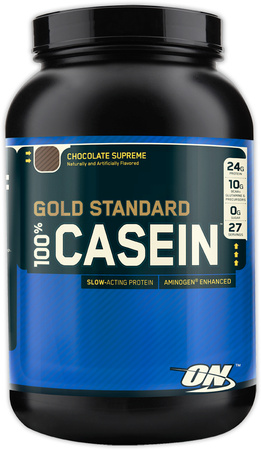 When you sleep, your body enters a fasted state. It’s crucial to have protein immediately before going to bed in order to feed your muscles the nutrients they need to recover and grow while you sleep. Your best bet is casein, the slowest-digesting protein around. Unlike other proteins such as whey casein will stay with you throughout most of the night, providing a steady stream of amino acids while you sleep.
When you sleep, your body enters a fasted state. It’s crucial to have protein immediately before going to bed in order to feed your muscles the nutrients they need to recover and grow while you sleep. Your best bet is casein, the slowest-digesting protein around. Unlike other proteins such as whey casein will stay with you throughout most of the night, providing a steady stream of amino acids while you sleep.
Ardon Says:
“Having a protein shake late at night or set-ting the alarm and getting up to have a shake after a few hours of sleep provides extra calories and protein to keep you out of a of catabolic state.”
Do This: Take 20-40 g of casein right before bed.
7 Carbs
Low-glycemic or slow-digesting carbs, such as those found in brown rice, sweet potatoes, whole-grain breads and oatmeal, have a minimal effect on insulin, which keeps blood sugar levels in check, reducing the chance of fat storage or fatigue. They should make up the bulk of your daily calorie intake during a mass-building phase because they form muscle glycogen, the long-lasting fuel that your body needs to train hard. Glycogen also pulls water into muscles cells.
Hill Says:
“Oatmeal for the first meal of the day provides an excellent source of energy as you go about the rest of your day. I always recommend complex carbs preworkout to provide enough energy to maintain training intensity for the entire session.”
Do This: Eat 2-3 g of slow-digesting carbs per pound of body weight per day.

8 Beef
Packing away the beef will help you pack on the meat. It contains an array of physique-swelling nutrients, such as creatine, carnitine, conjugated linoleic acid, alanine, iron, zinc, magnesium and vitamin [B.sub.6]. One 8-ounce serving of sirloin yields about 48 g of first-class protein.
Rambod Says:
“It’s one of the best whole-food sources of protein. This protein is more timed-release compared to other forms due to the saturated fat, so it gives your body a longer-lasting supply of amino acids for muscle repair and growth.”
Do This: Eat a minimum of one, but more ideally, two, servings of red meat per day.
9 Fat
Research shows that hard-training athletes who consume more fat, particularly saturated fat (as found in beef) and monounsaturated fat (olive oil, nuts and avocados), maintain higher Levels of testosterone than those getting in lower amounts of fat. In other studies, a higher cholesterol intake doubled the amount of muscle growth and strength gained while training, as compared to a low-cholesterol diet.
Stoppani Says:
“One of the easiest ways to get in adequate cholesterol and fat is to consume three whole eggs every day. Research shows that subjects eating three whole eggs gain twice as much muscle and strength as those eating none or just one whole egg per day.”
Do This: Make sure fats comprise 30% of your total daily calories, or at least 0.5 g per pound of bodyweight.

10 Glutamine
Glutamine is the most abundant naturally occuring nonessential amino acid in the body and offers an array of benefits, such as stimulating immune function, augmenting levels of growth hormone, warding off the production and circulation of catabolic hormones and, maintaining cell volume and hydration to promote anabolism.
Stoppani Says:
“Taking glutamine preworkout can also help to buffer the high acid levels that occur during training. This helps prevent fatigue, allowing you to train harder and longer.”
Do This: Take 5-10 g with your pre- and postworkout shake.
11 BCAAs
Aside from benefits such as increased energy, protein synthesis regulation and the halting of catabolism, branched-chain amino acids augment recovery. Muscles need an abundance of amino acids for healing, especially after training.
Stoppani Says:
“Look for BCAAs that provide a 2:1:1 ratio of leucine, valine and isoleucine. For example, a 5-g dose of BCAAs should provide 2.5 g of leucine, 1.25 g of valine and 1.25 g of isoleucine.”
Do This: Take 5-10 g within 30 minutes before workouts and immediately after training with your postworkout shake.
12 Zinc
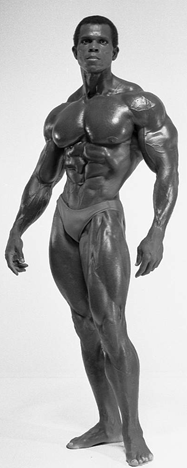 Studies have shown that intense exercise stimulates excessive zinc loss, which can prevent the pituitary gland from releasing luteinizing and follicle stimulating hormones for testosterone production. Plus, zinc improves appetite, so you can take in more of the nutrients you need to get big.
Studies have shown that intense exercise stimulates excessive zinc loss, which can prevent the pituitary gland from releasing luteinizing and follicle stimulating hormones for testosterone production. Plus, zinc improves appetite, so you can take in more of the nutrients you need to get big.
Stoppani Says:
“One of the best ways to get in zinc is to take a ZMA supplement that provides 30 milligrams of zinc and 450 mg of magnesium. That combination has been shown to boost muscle strength and size.”
Do This: Take one dose of ZMA about an hour before bed on an empty stomach.
13 Omega-3 Fatty Acids
The essential omega-3 fatty acids strengthen your cardiovascular system, prevent fat storage, enhance fat burning and glycogen synthesis, and create a favorable anabolic environment. New research shows that they may even enhance nitric oxide production. The best dietary sources are oily fish, such as salmon, tuna and sardines, and plant oils, such as flaxseed. About one third of your daily fat intake should come from omega-3 fats.
Hill Says:
“Adding more EFAs to the diets of my clients keeps growth hormone levels high, aids central nervous system recovery f and improves recovery due to the ability of EFAs to help control inflammation, which increases with very intense training.”
Do This: Take 2-3 g of fish oil with two or three meals each day.
14 Digestive Enzymes
Supplemental digestive enzymes improve the body’s ability to access and use nutrients for energy, cell growth and repair, and aid in the regulation of nearly every metabolic process.
Ardon Says:
“Eating is crucial to get big, but most people can’t digest the high amounts of foods needed to grow. That’s why digestive enzymes are essential.”
Do This: Take before every meal.
15 Postworkout Shakes
Intense training depletes muscle glycogen stores and reduces blood sugar levels considerably. Immediately after workouts, it’s critical to get vital nutrients back into the muscles to stop catabolism and boost muscle protein synthesis. Unfortunately, whole foods take quite a bit of time to digest, so shakes are the preferred method of delivery.
Rambod Says:
“Taking your protein with, a high-glycemic or fast-digesting carb such as dextrose right after training spikes insulin levels, which will shuttle more nutrients into the muscle to promote growth and recovery.”
Do This: Take a 40-100g dose of sugar-laden carbs along with protein right after training.
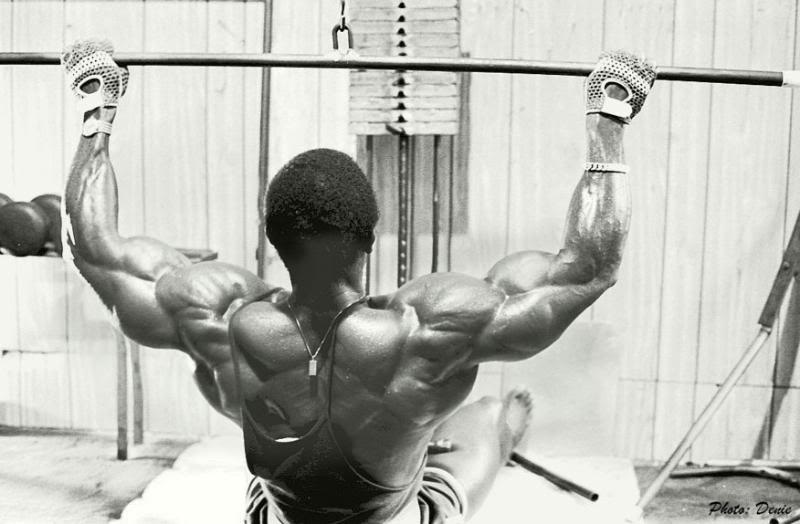
16 Arginine
This amino acid is the immediate precursor to nitric oxide production. Numerous studies have shown that it boosts NO production and results in increased blood flow, leading to the delivery of more nutrients to muscles. Research subjects who supplemented with the amino acids arginine and ornithine experienced a marked increase in both GH and IGF-I serum levels after heavy resistance training, compared to a placebo.
Stoppani Says:
“One study found that athletes taking arginine for four weeks gained more muscle and lost more fat than those taking a placebo.”
Do This: Take 3-5 g without food 30-45 minutes before working out.
17 Calcium
In addition to aiding bone health, numerous studies have shown that calcium ingestion helps boost fat metabolism, decreases fat storage and aids in the assimilation of macronutrients. More recent evidence, however, suggests that calcium can also trigger a greater release of testosterone following a heavy bout of resistance training.
Hill Says:
“Aside from supporting bone health, calcium improves the connection between your brain and muscles. This, in turn, promotes muscle growth, because it allows for improved muscular contractions.
Do This: Take 1,000-2,000 mg per day in divided doses of 500-600 mg.
18 Fruits & Vegetables
A recent study published in the Journal of Nutrition reported that a diet comprising many different fruits and vegetables boosting intake of different antioxidants warded off disease-provoking oxidative damage better than a diet with limited variety. For bodybuilders, oxidative damage can slow muscle recovery and increase the chance of injury, so be sure to eat your veggies to keep your recuperation on track and avoid missing any gym time.
Ardon Says:
“The key is to choose fibrous veggies such as string beans, asparagus and zucchini and then don’t overcook them. Lightly steam or bake them, so that they don’t lose their micronutrient content. The many micronutrients in veggies provide antioxidant properties that benefit muscle recovery and health.”
Do This: Eat at least one cup of veggies with most meals. Eat an apple, orange or other type of fruit or cup of berries with breakfast and your preworkout meal.

19 Cheat Meals
Although eating clean, nutritious food is an integral part of the bodybuilding lifestyle, there are benefits to letting loose and having a cheat meal every now and then. In addition to providing a break from strict contest dieting or just adding a change of pace to regular offseason fare, the greater influx of calories and nutrients speeds up the metabolism to trigger fat burning.
Rambod Says:
“The key is to cheat with ‘clean dirty’ foods. Getting good-quality proteins from foods like sirloin burgers or sushi will be far more useful to your body than really dirty cheat foods like pizza and fries, which have a very low protein to carb/fat ratio.”
Do This: The ideal time to schedule a cheat meal is the day before training a weak bodypart, as the extra calories, fats and sodium will be pushed into the muscles.
20 Mix Whey & Casein Protein
Unlike fast-digesting whey protein, casein takes longer to digest, so it supplies a steadier stream of amino acids during training and long after your workout is over.
Stoppani Says:
“A Baylor University (Waco, Texas) study found that subjects who consumed a whey-casein mixture built more muscle mass than those consuming whey alone.”
Do This: Take 30 g of whey and 10 g of casein, 30 minutes before and within 30 minutes after training.
Author: Jim Stopanni & Sommer Robertson
References:
http://www.muscleandfitness.com/
http://www.flexonline.com/
COPYRIGHT 2010 Weider Publications
COPYRIGHT 2010 Gale Group










